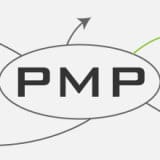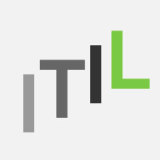ITIL v3 Foundation Certification Notes: Service Strategy [2]

[ITIL® v3 Foundation Study Notes] Important processes of the Service Strategy phase for the ITIL® 4 Foundation Certification exam are covered here, including: service portfolio management, financial management, business relationship management, demand management. The purpose, objectives, and scope of the processes and their importance in the Service Strategy lifecycle stage are addressed.
Article Highlights
Service Portfolio Management Process
- Purpose of SPM: ensure the appropriate mix of services to meet customer requirements, the information (e.g. investment, interaction with other services) in the service portfolio clearly define the services and link them to business outcome providing the capability for alignment across the whole lifecycle to deliver value
- Objectives of SPM
- a process to allow management of overall service provision – to review, control (how and when to provide the service), improve or retire a service
- maintain the definitive portfolio of all services provided including the business needs and achieved outcomes
- assist in judging the value of new service requests and review of investment
- allows the organization to understand the value of IT services to business goals
- Scope of SPM
- all the services in current use, in planning or having been retired
- track investment and expenditure on all services and determine whether they are delivering value throughout the whole lifecycle
- Output of SPM: Service Portfolio
- the complete set of services managed by a service provider (representing all the commitments and investments)
- three sections:
- pipeline section – pre-operational services, conceptual services (will be provided if resource is unlimited)
- service catalogue section – customer-facing, live operational services
- retired section – retired services
- to ensure correct funding for all IT services across pipeline (development) and service catalogue (maintenance) sections
Financial Management for IT Services Process
- Purpose: to secure enough funding for all the IT services (design, develop and deliver) and to control IT expenditures by balancing quality and cost, thus avoiding commitment to services that are not financially viable
- Objectives
- define the financial framework to manage cost, apply financial control, report expenditure and recover cost from customers (if applicable)
- study the financial impact of new / changed organizational strategy
- secure enough funding for IT services (need to align with the overall financial management of the organization) and provide financial forecasts in respond to needs and changes
- work with service assets and configuration management process to ensure all assets are maintained and all costs recorded
- Scope
- ensure the financial practices within IT is consistent with organizational standards so that other business units will have an understanding of how IT is funded
- three main processes with two cycles (planning / annual vs operational):
- Budgeting – predicting and managing exceptions of income and expenditure
- Accounting – establishing unit costs and recoding the expenditure with cost breakdown
- Charging – establishing pricing policy and billing the customers (if any)
Business Relationship Management Process
- Purpose of BRM: to establish relationship between the service provider and customers and to ensure customers satisfaction by responding to changing requirements and managing customer expectation
- Objectives of BRM
- understand customers needs and prioritize services accordingly to meet user requirements
- maintain good communication
- handle conflicts and complaints effectively
- identify changes in business environment and technology that could impact services
- ensure customer satisfaction
- Scope of BRM
- focus on high level perspective of whether the service meets business needs
- seek to understand customer requirements and business objectives
- keep track of changes in technology and environment and advise users on these
- understand the use of services on offer
- measure level of customer satisfaction and respond to complaints
- work with other service management processes and functions for information gathering, etc.
- BRM – strategic, to drive overall customer satisfaction vs Service Level Management – tactical, meeting agreed levels of service in operation
Demand Management
- Purpose and Objectives of DM
- to understand, anticipate and influence customer demand for services
- works with Capacity Management to ensure that sufficient capacity to meet demand
Business Case
- [definition] A business case is the justification for a significant item of expenditure. The business case includes information about costs, benefits, options, issues, risks and possible problems.
- A business case is a tool for decision planning and support for understanding the likely consequences of a business decision in quantitive or qualitative terms
- Information can be captured from the Service Portfolio with sound financial management
- Business cases are built in Business Relationship Management process and evaluated in Service Portfolio Management process
- Structure of a business case
- Introduction – business objectives
- Methods and assumptions – define the boundaries (e.g. time, context)
- Business impacts – financial and non-financial (image, satisfaction, etc.) consequences
- Risk and contingencies
- Recommendations
- Business objectives and business impacts are closely linked and may have one-to-many / many-to-one relationship.
Conclusion: ITIL® v3 Foundation Service Strategy Processes
This ITIL® v3 Foundation study note mentions a number of Service Strategy processes:
- Service Portfolio Management – provides information for the whole service lifecycle
- Financial Management – manages costs and budgets for the whole service lifecycle
- Business Relationship Management – provides high-level, strategic interface with customers
- Demand Management – understands the demand for the service
This concludes the service strategy and brings us to the next phrase — Service Design.





 Hi, my name is Edward Chung, PMP, PMI-ACP®, ITIL® Foundation. Like most of us, I am a working professional pursuing career advancements through Certifications. As I am having a full-time job and a family with 3 kids, I need to pursue professional certifications in the most effective way (i.e. with the least amount of time). I share my exam tips here in the hope of helping fellow Certification aspirants!
Hi, my name is Edward Chung, PMP, PMI-ACP®, ITIL® Foundation. Like most of us, I am a working professional pursuing career advancements through Certifications. As I am having a full-time job and a family with 3 kids, I need to pursue professional certifications in the most effective way (i.e. with the least amount of time). I share my exam tips here in the hope of helping fellow Certification aspirants!






Hi Edward, I want to register for greycampus itil online course+exam bundle. So even after taking that course, do i need to buy Passing Your ITIL Foundation Exam book by axelos for passing the exam or that book is included in the online course itself? Also what do you think of toughtrock exam bundle? I want to appear for the exam next week and I want to take exam at one of the test center. Thoughtrock say I cant appear for the exam at any test center, I can just give online exam on my own. Thanks
The online course itself is enough for passing the ITIL Foundation Exam. If, however, you would like to get higher marks/better preparation, an additional ITIL Study Guide is recommended (I did make use of an additional guide to help me pass the exam).
As I have not tried Thoughtrock, I cannot comment on it. But, just like Thoughtrock, the Greycampus ITIL online course+exam bundle is for online exams only.
Wish you ITIL success!
Hello Edward. While preparing for ITIL foundations exam, I am following the study guide by Liz Gallacher and Helen Morris as recommended by you, but I am very confused with Demand Management topic. In this book Demand Management is not mentioned as one of the Service Strategy processes whereas everywhere else including the official ITIL Service Strategy Book as well as in your notes I see that Demand Management is a part of Service Strategy processes. Have you noticed this discrepancy and do you know the reason for that? This may lead me to mark wrong answers in my exam on this topic if this book is not giving accurate information. What are your thoughts?
Hi Alex,
For the ITIL Foundation Exam, demand management is not included as one of the exam topics (https://www.axelos.com/Corporate/media/Files/Syllabi/The_ITIL_Foundation_Certificate_Syllabus_v5-5.pdf). I just include it here for completeness’s sake. Sorry to confuse you here.
Wish you ITIL success!
Many thanks for the clarification Edward. That explains why it is not there in the book though it is part of the Service Strategy processes. On a different note but about ITIL. most of the exam bodies like EXIN, Pearson, Acquiros and BCS etc are not providing ITIL exam vouchers which are valid beyond 31 Dec 2017 and have mentioned that the Foundation exam will be discontinued after that date. I am speculating if V3 is being replaced by V4 in 2018 or perhaps these agencies will no longer be attached to Axelos to conduct future ITIL exams. Do you know anything about this? Thanks
Dear Alex,
No indeed, the ITIL v3 Foundation Exam will still be there after 2018 — only that ITIL has appointed PeopleSoft as the sole provider of ITIL Exams. There are many ITIL exam providers in 2017 but ITIL has decided to grant only one organization for administering ITIL Exams from 2018 onwards and PeopleSoft was selected earlier this year.
So rest assured that the ITIL v3 Foundation Exam is still there!
Wish you ITIL success!